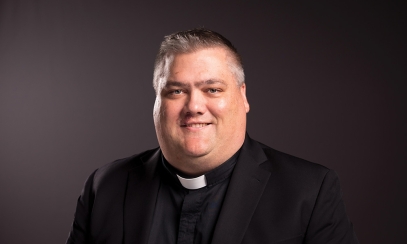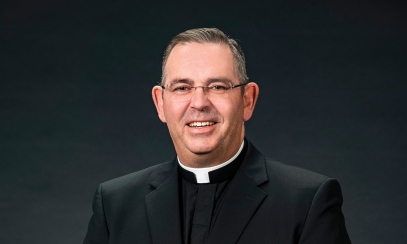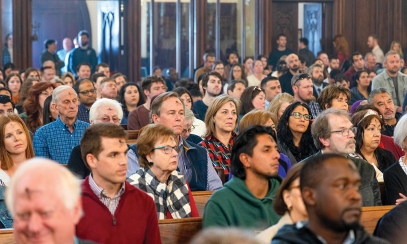
Celebrating and Sharing Our “Diverse-abilities”
People tend to gravitate toward others who are like them. Very often we choose friends with the same hobbies, beliefs and interests because this helps us build relationships and live in community with others. However, this tendency can be detrimental to fully including all people in our communities.
People tend to gravitate toward others who are like them. Very often we choose friends with the same hobbies, beliefs and interests because this helps us build relationships and live in community with others. However, this tendency can be detrimental to fully including all people in our communities.
In society and in the church, persons with disabilities have sometimes been labeled as “too different” from societal norms, which leads to isolation and creates harmful distinctions between “us” and “them.” The simple perception of difference, whether physical or psychological, harms the Mystical Body of Christ and undermines our unity in Christ.
As St. John Paul II noted in his apostolic exhortation Familiaris Consortio, we are called to be aware of the varied lived experiences within our parishes where adequate and specialized pastoral care is needed. Merely noticing intellectual, physical or psychological differences without seeking to create fully inclusive opportunities for meaningful worship and community isolates people with diverse abilities. This indifference impedes our brothers and sisters from participating fully in liturgy and in ministry.
In their pastoral statement on persons with disabilities, the U.S. bishops write that full inclusion of people with diverse abilities reflects a sincere love that penetrates the wall of strangeness and affirms our common heritage as Christians. Jesus gives us the perfect example of love that penetrates when he speaks about leaving the 99 to pursue the one separated from the flock (Lk 15:4). Despite any obstacle, language barrier, change in routine or financial undertaking, the church’s teaching on the sanctity of human life and the inherent dignity of the human person assures us that all are worthy to be included in the Body of Christ.
Bishop Joe Vásquez has led us in reaching out to those who have been isolated. In a recent letter to the priests of the diocese, he conveyed how it is imperative to “provide the means for deaf (hard of hearing) awareness, information and education ... especially during our emphasis on Eucharistic Revival.” This attention is not the sole responsibility of our priests.
By virtue of our baptism, we are accepted into communion with one another as brothers and sisters of faith. Unfortunately, some members of the Body of Christ have been isolated due to lack of accessibility. This division prevents us, the faithful of Central Texas, from reaching a full understanding of the graces of communion with one another. Part of our duty in the Eucharistic Revival is to continue to pursue deeper communion, despite our differences.
Families in the diocese often feel the ache of isolation due to misunderstanding and a greater need for access to the life of the church. Recently, the diocesan Office of Life, Marriage and Family spoke with mothers of children with developmental disabilities. The moms communicated the hurt they felt because of a lack of education about disabilities. In their families’ experiences, misunderstandings of need led to a gap in how they participated in their parishes. As the local church, it is our responsibility to learn about the needs of families in our parishes so that we can intentionally seek to provide individualized pastoral support. In so doing, families can continue their essential work of being the domestic church to their children with diverse abilities.
As a continuing effort to understand the needs of our brothers and sisters in the diocese, the Office of Life, Marriage and Family facilitated a consultation session with members of the Deaf Apostolate. In this gathering, members of the Deaf and hard-of-hearing community and their family members shared their experiences with obstacles they faced in fully engaging in the life of the church. This opportunity allowed diocesan staff to learn from our brothers and sisters who are deaf and hard of hearing about what they need to fully engage in their faith. Staff members were deeply moved by the witness of attendees and their vulnerability in sharing their experiences and have been praying, discerning and discussing ways to pursue in a more intentional way full inclusion of the Deaf and hard-of -hearing community.
As part of the local church, we invite the faithful of the Diocese of Austin to partner with us. We want you to share your unique gifts and talents fueled by the graces you received at your baptism, sealed in you at your confirmation and strengthened in you by the Eucharist. By these graces that unite us as the Body of Christ, we can work to eliminate any barriers to accessing the full life of the church. Contact the Office of Life, Marriage and Family by email at lcj-office@austindiocese.org or call (512) 949-2482.



